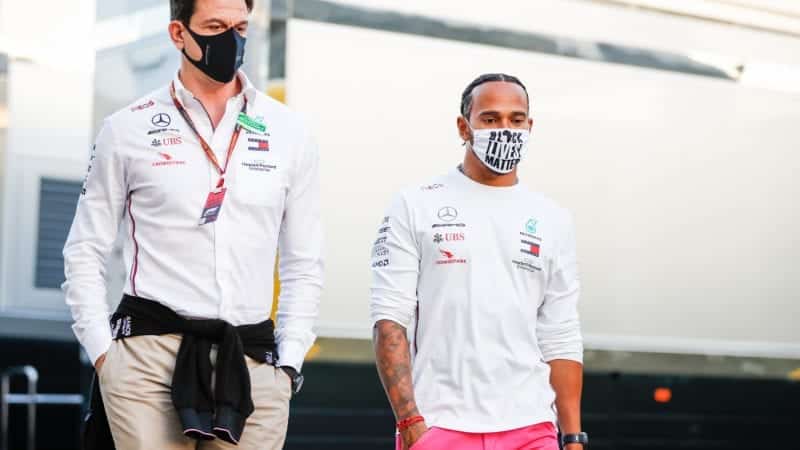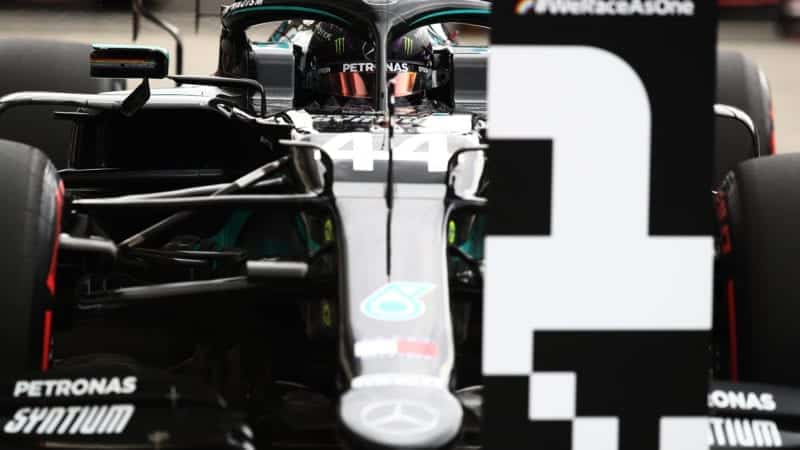But it’s a short-term deal in every respect: everyone will be in a very similar position in only a few months’ time, because it only covers this current year.
Now, this is where I contradict myself slightly and say Hamilton and Mercedes should be allowed a bit of breathing space, even if it doesn’t make the deal any less interesting to dissect.
As 2020 wore on, questions about the new contract grew louder and louder, and the team ended up in a bit of a hole expecting to have it all cleared up long before now. That’s directly due to Covid-19, not only because of the way it has impacted on the ability to travel and have in-person meetings, but because Hamilton himself suffered from the virus at the end of last season.
“The [mention of] curveballs were meant for the situation with him having Covid in the time when we expected to sit down face to face in Bahrain,” Wolff said, referencing recent comments regarding why a deal was taking a while to conclude.
“We left it very late, we wanted to discuss the contract at the end of the season between the Bahrain races and then obviously Lewis didn’t feel well and in the end we started our conversations just before Christmas. It was important to get it done as soon as possible and in that respect we thought, ‘let’s postpone the discussion about 2022 and onwards to a later stage in 2021.’”

Hamilton launched into the fight for equality in 2020
DPPI
So given the fact that there was such clamour for Mercedes to announce a deal, it would be a little unfair to then be critical of what has been announced. By addressing the immediate need to have a contract in place in the short-term covering 2021, both sides can now take even more time without external pressure (if they feel it at all) to look beyond that.
But it does draw a line in the sand that reflects uncertainties in the world that extend beyond Hamilton’s own career path.




